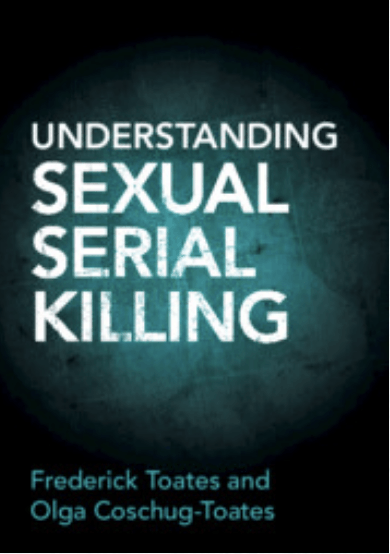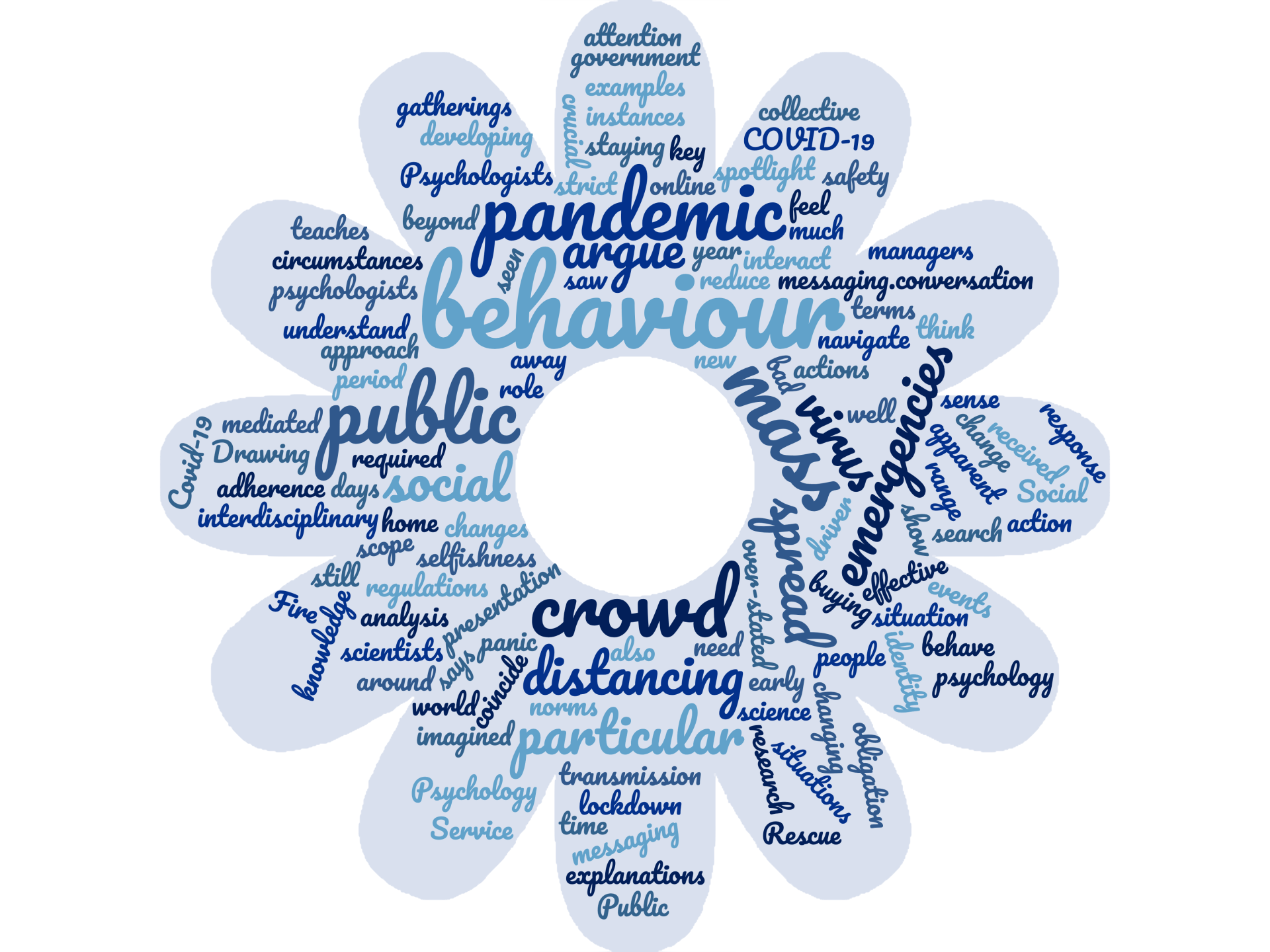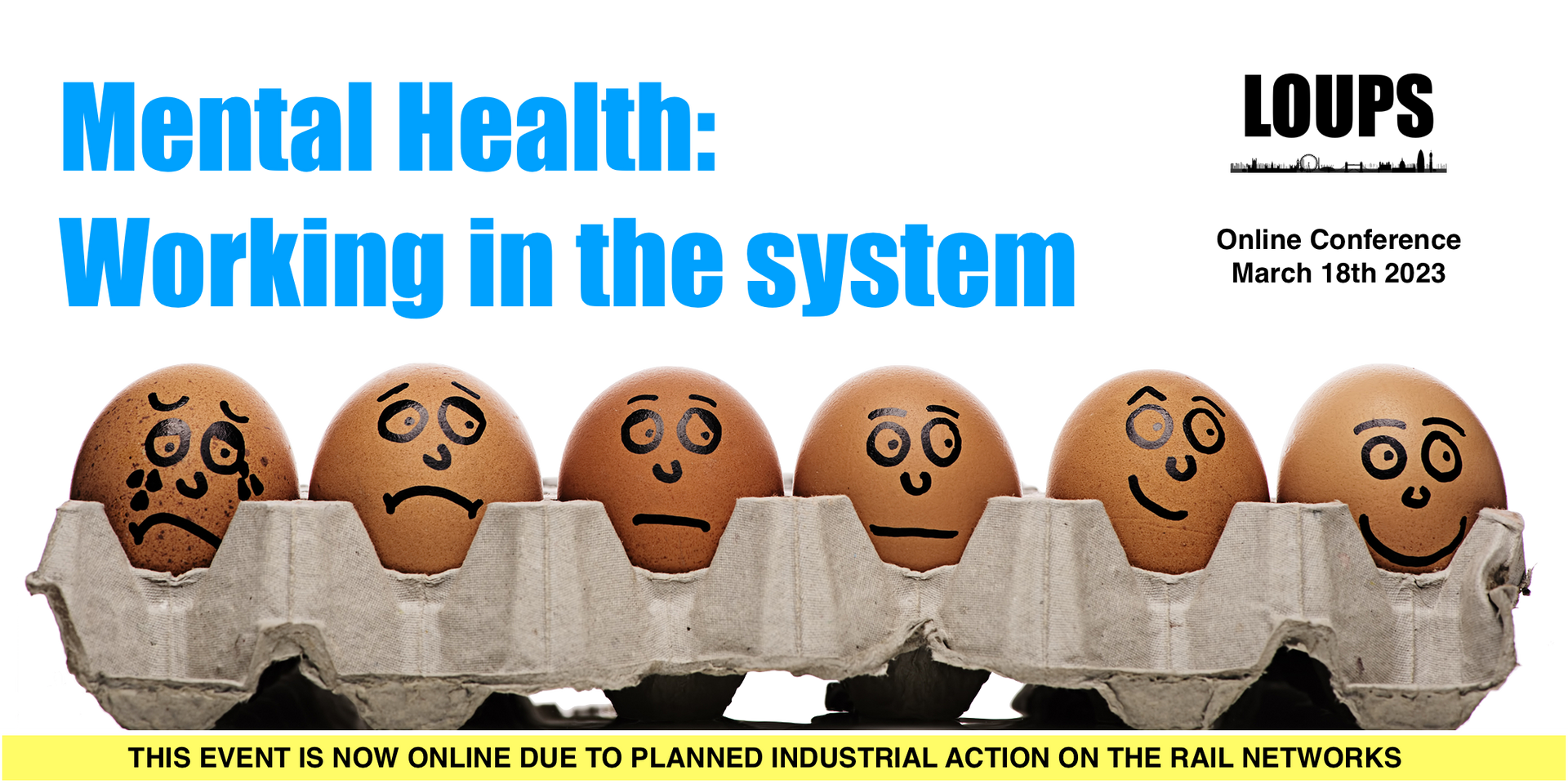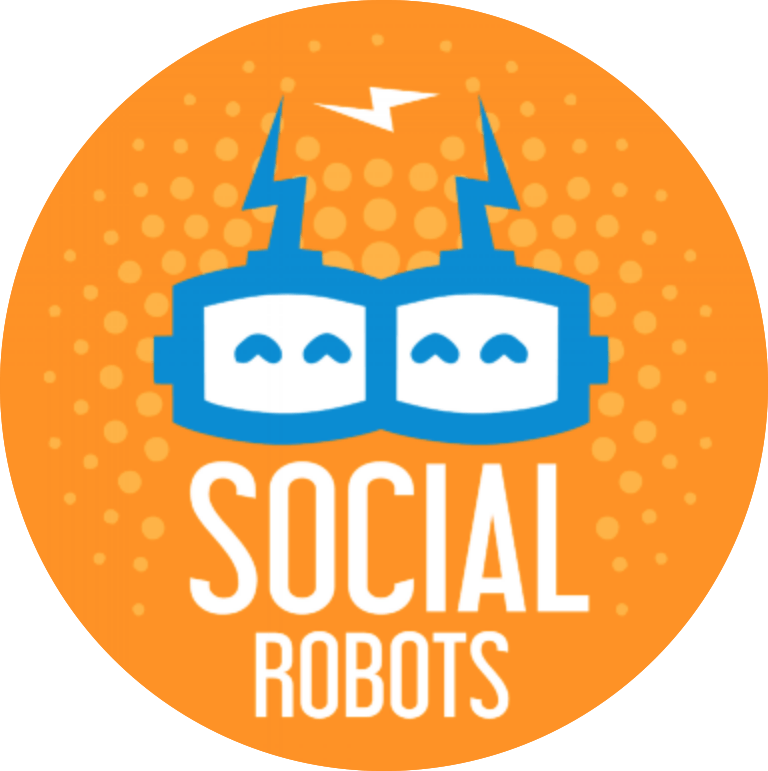LOUPS Conference 2020: Technology and Psychology
The Open University Psychological Society 2020 Day Conference managed to sneak in prior to the implementation of social distancing protocols in the United Kingdom. The conference was held at the New Academic Building of the London School of Economics on the 14th March; our typical stomping ground in London but an unusually quiet experience at the typically bustling venue. The topic of the conference, Technology and Psychology, was eerily prophetic because the Covid-19 pandemic has transformed daily life and technology has become an even greater influence.

The first presentation was by Professor of Cognitive and Computational Neuroscience at the University of Sussex, Anil Seth. The presentation was delivered virtually, but it in no way lessened its impact. Consciousness was a key focus of the talk: the mind/brain, the subjective/objective and the inner/outer. Anil referenced the hard problem and the easy problem of consciousness. The hard problem is the how and the why of consciousness; whereas the easy problem of consciousness refers to the question of how the brain works as a machine. Anil posited that the real problem of consciousness is to explain its properties and talked about three aspects of consciousness.
First is the level, or, how conscious are you? Second is the content of consciousness, and third is the self, or perceptions of consciousness.
The presentation was scientifically fascinating, and during a question and answer portion at the end, Anil and an attendee had a discussion about experiences of pain. Anil provided us with an excellent start to the conference and a lot to consider regarding the psychology of consciousness, our personal experiences and the man-machine paradigms.

Dr David Leslie delivered his lecture in person, practicing the social distancing measures which were to become perfunctory just days later. David's lecture, Changing Shapes of Psychic Life in the Prediction Society, was a barnstorming presentation covering a range of issues pertaining to artificial intelligence (AI).
Arguably one of the most significant issues is ethics and David is well-placed to talk about it as he is the Ethics Theme Lead within the public policy programme at The Alan Turing Institute. AI and ethics is a complex topic because it can be conceptualised as a battle however, AI can be used to improve human welfare, for example, improving innovation, disease detection and, particularly relevant in these Covid-19 times, education provision.
AI and technological advances can offer 'unprecedented social benefits' as well as harm, such as, 'digital despotism' and the 'brain drain' represented by the financial incentives large corporations can offer. David characterised our present times as a 'civilizational tipping point', represented by the notion that humanity is 'uniquely equipped to create opportunities for its destruction'. A sombre thought.
During the question and answer session at the end, Dr David and OUPS' very own David Byrne, had a fascinating exchange about the responsibilities of AI innovation and innovators in which David referenced 'wide scale what-aboutism?'.
A thought-provoking session.
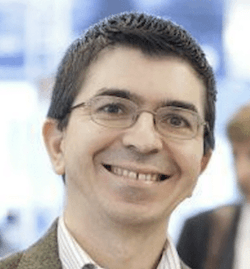
Turing Fellow and Professor of Machine Learning and Robotics at the University of Manchester, Angelo Cangelosi was the third speaker at the conference. Angelo presented the Gavagai problem, which, in brief, refers to the fact that language learning is culturally situated and embodied [video explanation: https://www.youtube.com/watch?v=0YY4qxkqm3o ].
Computers and robots can be pre-programmed with a dictionary but they cannot understand the language in the same way as humans. Cognitive developmental robotics is a multidisciplinary field including computer science, robotics, linguistics, cognitive psychology, ethology and child psychology.
Angelo explained that children's development is slow yet efficient and that their theory of mind develops for social interactions. It was a compelling lecture which posed some interesting questions about robots, language and cognition, such as, how can we design robots that are capable of using language to communicate with humans and other robots? Angelo presented a great session to a captive audience and included aspects that I personally would not think to connect. A wonderful session about technology and psychology.
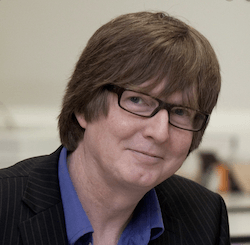
The fourth and final lecture of the conference was from Professor Tony Prescott. Tony is Professor of Cognitive Robotics at the University of Sheffield and the Director of Sheffield Robotics.
Tony spoke about synthetic psychology, or psychology which seeks to synthesise human-like behaviour. Interestingly, it was not a human-based robot which stole the show; it was SCRATCHbot! Tony played some videos of SCRATCHbot (Spatial Cognition and Representation through Active TouCH bot), which is a robot inspired by the manner rats use their whiskers to explore their environment.
Moving onto the study of the self, Tony offered examples of where robotics could be useful to investigate questions, such as, what is the functional architecture underlying the experience of being a self? Multiple senses of self were discussed, including, the ecological, agential, temporal, interpersonal, conceptual and private; in addition to a diversity of selves, including multiple personality disorder and amnesia. Tony's presentation was thoroughly enjoyable and a fabulous way to end the conference.
The 2020 London & South OUPS Day Conference was a stimulating event held in unprecedented times. Our four speakers presented engaging lectures that were incredibly diverse yet formed a coherent conference of Technology and Psychology. Consciousness was a genius way to begin the day and Anil had us thinking about our conceptions of consciousness. David's talk was absorbing and succinctly covered a lot of material, plus the question and answer portion at the end provided some fascinating exchanges. Angelo's lecture connected technology and psychology in unexpected but intriguing ways. Finally, Tony closed the sessions with a presentation linking the themes of the conference in a thrilling way.
Another wonderful event held by LOUPS, and only two weeks after the brilliant mini conference. The events and lectures held by LOUPS are far more interesting than a brief write-up such as this captures. There are a number of recordings and related resources available on the OUPS website to enjoy at leisure.
Thank you to our four wonderful speakers; Anil, David, Angelo and, Tony. Thank you also to David and Amada, as well as everyone at LOUPS, for arranging such an interesting event.
